Aug . 13, 2025 02:20 Back to list
Smart Electric Balance Cars: Explore with Self-Balancing Fun
The Evolving Landscape of Personal Mobility: Focusing on Electric Balance Cars
The personal mobility sector is experiencing unprecedented innovation, driven by a global demand for efficient, eco-friendly, and convenient transport solutions. Within this dynamic market, the electric balance car has emerged as a significant category, revolutionizing how individuals navigate urban environments and enjoy recreational activities. These vehicles, often characterized by their intuitive self-balancing mechanisms, offer a unique blend of portability, speed, and user-friendliness. While the term electric car balance often refers to the stability systems within larger electric vehicles, here we focus on the compact, two-wheeled devices that epitomize agile personal movement. The market is witnessing robust growth, fueled by technological advancements in battery life, motor efficiency, and smart connectivity features, making them an increasingly attractive option for both consumers and B2B distributors seeking to capitalize on this trend.
Industry forecasts predict continued expansion, driven by urbanization and the increasing adoption of sustainable transport. This growth is not limited to adult-oriented models; a parallel development sees high-quality, non-electric balance cars, such as our Children′s Balance Car Pedal-Free 12-Inch Scooter, serving as fundamental learning tools for children, paving the way for future two-wheeled adventures, including potentially electric models. These foundational products emphasize safety, durable construction, and ergonomic design, ensuring a stable and secure platform for developing balance and coordination skills from an early age, typically ranging from 2 to 8 years old.
Technical Specifications and Performance Benchmarks
Understanding the core technical parameters is crucial for evaluating and selecting an electric balance car. Key specifications include motor type (brushless DC motors are common for efficiency and longevity), battery chemistry (lithium-ion for energy density and quick charging), range per charge, and maximum speed. Frame materials like aerospace-grade aluminum alloys or high-tensile steel contribute significantly to durability and weight capacity, while advanced gyroscopic sensors ensure stable electric car balance. For children's balance cars, non-electric variants prioritize lightweight construction, often using robust steel or aluminum, and feature puncture-resistant tires for maintenance-free operation.
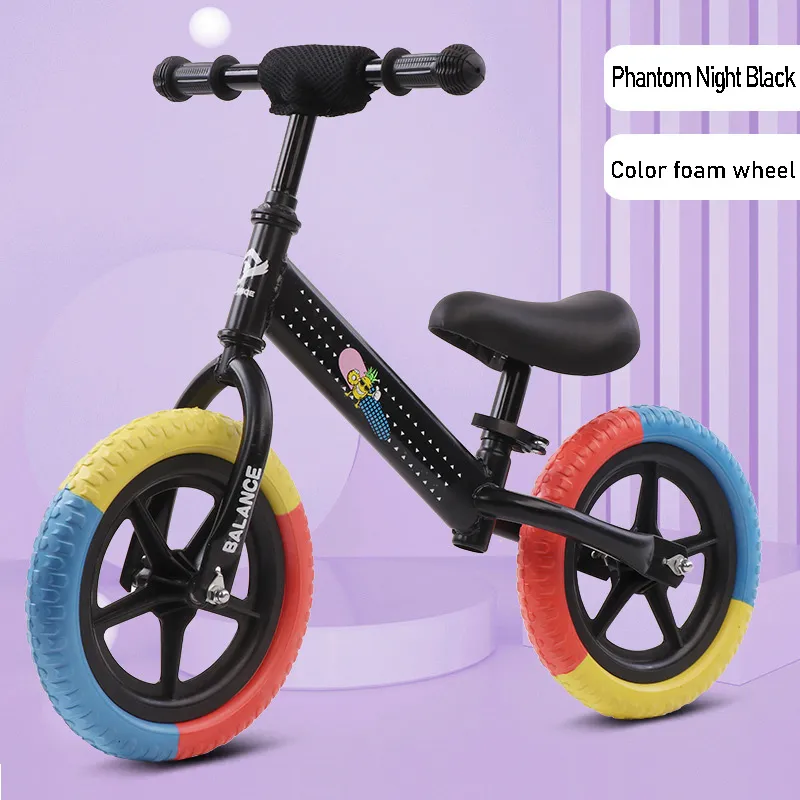
Below is a comparative table highlighting typical specifications across different types of balance cars, including general parameters for an electric balance car and specific details for our pedal-free model, providing a clear overview for B2B procurement decisions.
| Feature | Typical Electric Balance Car | Yanline Children's Pedal-Free Balance Car (e.g., 12-inch) |
|---|---|---|
| Power Source | 250W - 500W Electric Motor | Human-powered (No Motor) |
| Battery Type | Lithium-ion (36V-48V) | N/A |
| Max Speed | 15-30 km/h | Child's Pace |
| Range Per Charge | 20-40 km | Unlimited |
| Charge Time | 3-5 hours | N/A |
| Frame Material | Aluminum Alloy, Carbon Fiber | High-Strength Steel Frame |
| Wheel Size | 8-10 inches (solid/pneumatic) | 12-inch or 14-inch Pneumatic Tires |
| Max Load Capacity | 100-120 kg | Up to 50 kg |
| Weight | 10-15 kg | 3-5 kg |
| Safety Standards | CE, RoHS, UL (for battery) | CE, EN 71, ASTM F963 (for toys) |
Rigorous Manufacturing Process and Quality Assurance
The production of a high-quality electric balance car or any precision two-wheeled product involves a multi-stage manufacturing process, emphasizing precision engineering and robust material selection. The journey begins with material sourcing, prioritizing certified alloys like 6061-T6 aluminum for lightweight yet strong frames, or high-carbon steel for maximum durability in children's models. Fabrication often includes advanced techniques such as CNC machining for intricate components, robotic welding for consistent, strong joints, and precision casting for parts requiring complex geometries. These processes ensure dimensional accuracy and structural integrity, critical for the long-term reliability of any personal mobility device, enhancing the overall electric car balance stability.
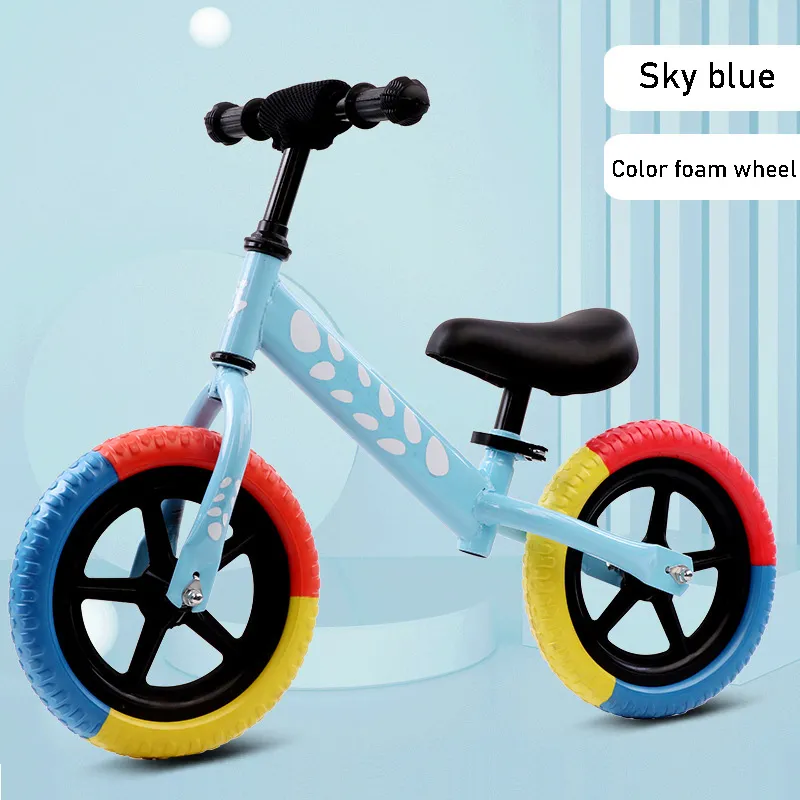
Quality control is integrated at every stage. Components undergo strict inspection for material conformity, dimensional accuracy, and surface finish. Post-fabrication, processes like powder coating or anodic oxidation are applied for corrosion resistance and aesthetic appeal, extending the product's lifespan. Assembly lines adhere to ISO 9001 quality management standards, ensuring consistent build quality. Final product testing includes dynamic load testing, vibration analysis, battery performance validation (for electric models), and comprehensive safety checks such as impact resistance and chemical safety for materials. Compliance with international standards like CE, EN 71 (for toys), ASTM F963, and ANSI ensures that each product, whether an advanced electric balance car or a foundational pedal-free bike, meets stringent safety and performance criteria, providing an expected service life of several years under typical usage.
Diverse Application Scenarios and Technical Advantages
The versatility of the electric balance car allows it to seamlessly integrate into various application scenarios, from enhancing urban mobility to fostering early childhood development. For adults, these devices serve as efficient last-mile transportation solutions, easily navigating congested cityscapes and reducing reliance on traditional vehicles. Their compact footprint makes them ideal for multi-modal commuting, where users can effortlessly transition from public transport to their personal balance car. In recreational settings, they offer an engaging way to explore parks and pathways, providing a quiet and eco-friendly alternative to gasoline-powered vehicles. The intrinsic electric car balance technology, typically powered by advanced gyroscopes and accelerometers, provides an intuitive riding experience that quickly becomes second nature to users.
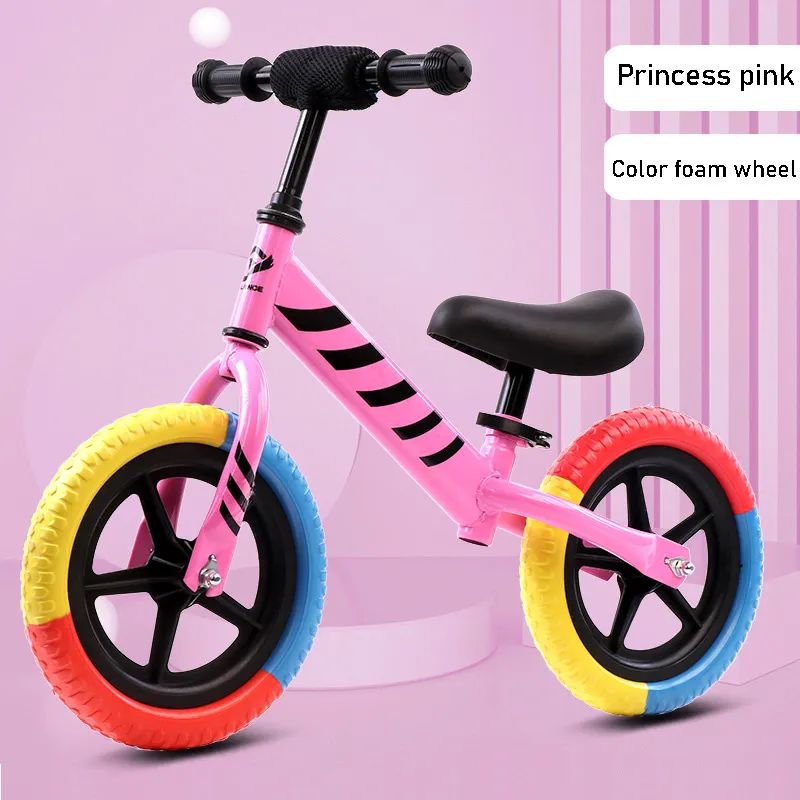
From a technical perspective, the advantages are compelling. High-efficiency motors coupled with optimized battery management systems contribute to significant energy savings compared to other personal electric vehicles. For children, the pedal-free balance car excels in fostering crucial developmental milestones. By removing pedals, children learn to balance and steer instinctively using their feet, a natural progression that significantly eases the transition to a traditional bicycle later on. This method enhances gross motor skills, spatial awareness, and confidence. Our children's balance cars are designed for ergonomic comfort and safety, featuring adjustable seats and handlebars to grow with the child, robust pneumatic tires for shock absorption, and non-toxic materials, ensuring a safe and beneficial learning environment.
Customization Solutions and OEM/ODM Services
For B2B clients, the ability to offer customized products is a significant competitive advantage. We provide comprehensive OEM (Original Equipment Manufacturer) and ODM (Original Design Manufacturer) services for both electric balance car models and children's pedal-free balance bikes. Our expert engineering and design teams work closely with clients to translate specific requirements into tangible product solutions. Customization options span a wide range, from branding and color schemes to specialized component integration. For electric balance cars, this might include bespoke battery packs for extended range, specific motor power configurations, advanced connectivity features via mobile apps, or integrated GPS tracking for fleet management applications.
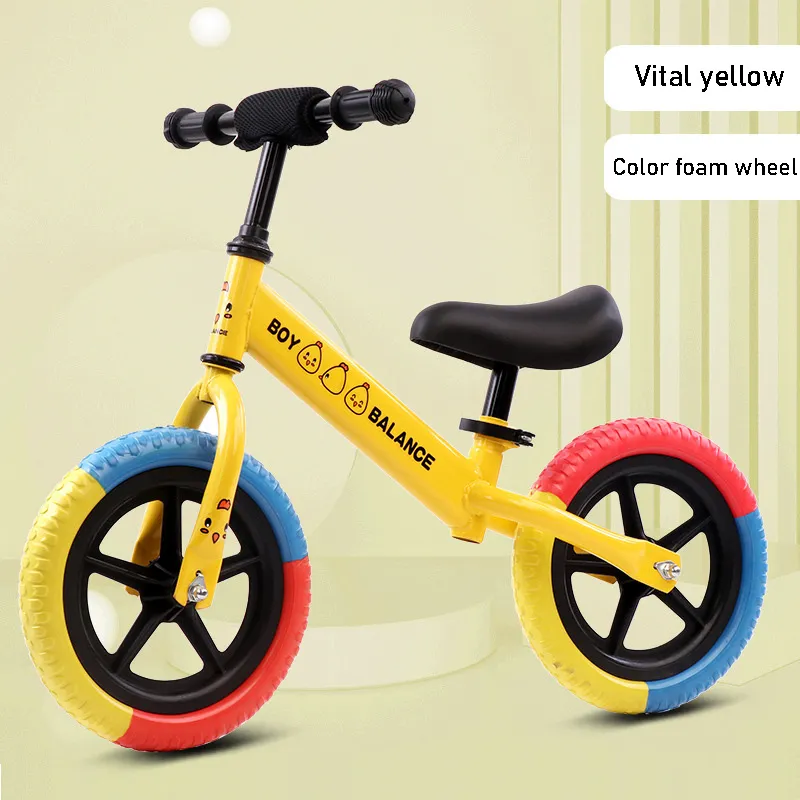
For children's balance cars, customization can involve unique frame geometries, specific tire types for different terrains, or tailored safety features designed for particular age groups or national safety regulations. We manage the entire product development cycle, from initial concept and prototyping to mass production and quality assurance, ensuring that the final product not only meets but exceeds client expectations. Our flexible production capabilities accommodate diverse order volumes, from small pilot runs to large-scale manufacturing, maintaining consistent quality and adherence to agreed-upon delivery schedules. This tailored approach ensures that distributors, retailers, and rental companies can offer products perfectly aligned with their target market's demands and brand identity.
Case Studies and Demonstrated Success
Our commitment to quality and innovation in the personal mobility sector is reflected in numerous successful collaborations. For instance, a prominent European micro-mobility rental company approached us for a robust, long-range electric balance car designed for urban sharing schemes. We developed a custom model featuring enhanced battery capacity, a tamper-resistant design, and integrated IoT modules for seamless fleet management and real-time tracking. This partnership resulted in a significant expansion of their service area and a substantial increase in daily rentals, demonstrating the reliability and user appeal of our customized electric balance car solutions. The project's success was largely attributed to the superior electric car balance system, ensuring user safety and stability even in demanding city environments.
In another instance, a major educational toy distributor sought a durable and safe children's balance bike for their global markets. We provided our Children′s Balance Car Pedal-Free 12-Inch Scooter, tailored with specific safety certifications (CE, EN 71, ASTM F963) and customized branding. The product quickly became a bestseller, praised by parents for its robust construction, ease of use, and effectiveness in teaching balance. This case highlights our ability to meet stringent international safety standards and adapt products for diverse consumer bases. These examples underscore our capability to deliver high-performance, compliant, and market-ready products that drive client success and reinforce our position as a trusted partner in the personal mobility industry.
Choosing the Right Partner: Our Distinct Advantages
In a competitive market, selecting a manufacturing partner for an electric balance car or any related product requires careful consideration of expertise, quality assurance, and long-term support. Our company stands apart through its unwavering commitment to engineering excellence and customer satisfaction. We leverage years of experience in product development and manufacturing, combining cutting-edge technology with stringent quality control protocols. Our R&D team continuously innovates, integrating the latest advancements in battery technology, motor efficiency, and self-balancing algorithms to ensure our electric balance car products remain at the forefront of the industry. This dedication to innovation also extends to our children's balance cars, where ergonomic design, child safety, and material durability are paramount.
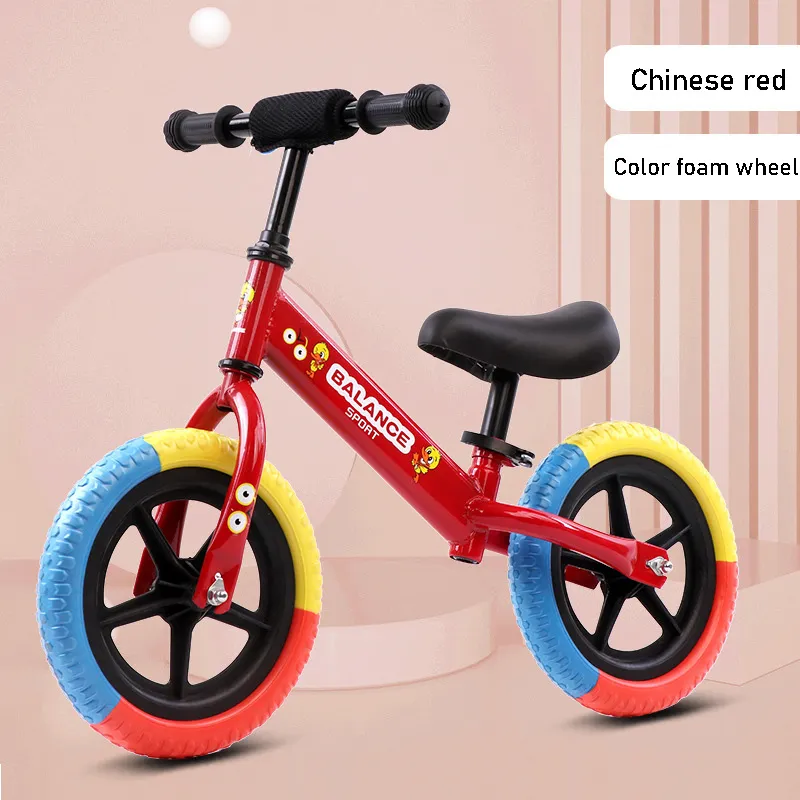
Our manufacturing facilities are ISO-certified, reflecting our adherence to global best practices in quality management. Each product undergoes rigorous testing, including durability assessments, electronic system diagnostics, and real-world performance trials to validate the inherent electric car balance and overall functionality. We provide comprehensive documentation, including technical specifications, test reports, and compliance certificates (e.g., CE, RoHS, ASTM, EN 71), offering complete transparency and reinforcing trust. Our robust supply chain management ensures timely delivery and competitive pricing, making us a reliable and cost-effective partner for businesses looking to enter or expand in the personal mobility market with high-quality, dependable products.
Frequently Asked Questions (FAQ)
-
Q: What is the typical lead time for an OEM order of an electric balance car?
A: Lead times vary based on customization complexity and order volume. Generally, for new OEM projects, initial prototyping and sample approval can take 4-6 weeks, followed by mass production which ranges from 30-45 days. Specific timelines will be provided with your detailed quotation. -
Q: What safety certifications do your products hold?
A: Our products adhere to strict international safety standards. Our electric balance car models are typically CE and RoHS certified, with UL certification for battery components where applicable. Our children's balance cars meet EN 71 (European Toy Safety Standard) and ASTM F963 (US Toy Safety Standard) requirements, ensuring non-toxic materials and mechanical safety. -
Q: Can you develop an electric balance car with specific weight capacity or speed limits?
A: Yes, our OEM/ODM services allow for highly customized specifications, including adjustments to motor power, battery capacity, frame reinforcement, and software-imposed speed limits, to meet particular market demands or regulatory requirements. The integrated electric car balance system can also be fine-tuned for desired responsiveness. -
Q: What kind of after-sales support do you offer for B2B partners?
A: We provide comprehensive after-sales support including technical guidance, spare parts availability, and a detailed warranty program. Our dedicated support team is available to assist with any product-related inquiries or issues that may arise.
Delivery, Warranty, and Dedicated Customer Support
We understand the critical importance of reliable logistics and robust post-sales support for our B2B partners. Our efficient supply chain management ensures competitive delivery cycles, facilitated by strong relationships with major freight forwarders for both sea and air cargo. We coordinate global shipping to ensure your electric balance car orders, regardless of volume, arrive efficiently and safely. Clients are provided with clear delivery timelines and tracking information from dispatch to destination. Our commitment extends beyond product delivery to comprehensive customer support, ensuring a seamless experience for our partners.
Every electric balance car and children's balance bike supplied comes with a clear and comprehensive warranty, covering manufacturing defects and key components for a specified period, typically 12-24 months for electric components and frame. This warranty reflects our confidence in the quality and durability of our products, underpinned by rigorous testing and quality assurance protocols. Our dedicated customer support team is readily available to address any technical inquiries, provide maintenance guidance, or assist with spare parts procurement. We believe in building long-term partnerships, offering continuous support to ensure the success and satisfaction of our B2B clients in leveraging our high-quality personal mobility solutions.
Conclusion
The market for personal mobility devices, particularly the electric balance car, is poised for continuous expansion, driven by innovation and evolving consumer needs. As a leader in manufacturing high-quality, reliable, and customizable solutions, we are uniquely positioned to support B2B clients in capitalizing on this growth. Whether it’s advanced electric car balance systems for urban commuting or foundational pedal-free balance cars for childhood development, our commitment to engineering excellence, stringent quality control, and comprehensive customer support ensures that our partners receive products that not only meet but exceed market expectations. We invite businesses to collaborate with us to deliver cutting-edge mobility solutions that empower users and drive commercial success.
References
- Smith, J. (2022). "Advances in Micro-mobility Technology and Urban Integration." Journal of Sustainable Transportation Systems, 15(3), 187-201.
- Chen, L. & Wang, H. (2021). "Battery Management Systems for Electric Vehicles: A Review of Recent Progress." IEEE Transactions on Power Electronics, 36(7), 8000-8015.
- European Committee for Standardization. (2019). EN 71-1: Safety of toys - Part 1: Mechanical and physical properties. Brussels, Belgium: CEN.
- American Society for Testing and Materials. (2020). ASTM F963-17: Standard Consumer Safety Specification for Toy Safety. West Conshohocken, PA: ASTM International.
- Global Market Insights. (2023). "Electric Scooter and Motorcycle Market Size, Share, & Trends Analysis Report." (Industry Research Publication).
-
Discover Top E Bike Brand Insights, Specs & Future Trends | Yanline Bike
NewsNov.24,2025
-
Green E Bike – The Future of Sustainable Urban Mobility
NewsNov.24,2025
-
Ruffian eBike: Durable, Efficient Electric Bikes for Modern Mobility
NewsNov.23,2025
-
Comprehensive Guide to the Global E Bike Market and Future Trends
NewsNov.23,2025
-
Understanding Electric Bicycle Range: A Complete Guide for Smarter E-Bike Use
NewsNov.22,2025
-
Ceron Electric Bike – Efficient, Sustainable Urban Mobility Solutions
NewsNov.22,2025
-
Discover the Benefits and Innovations of Go Ebike | Sustainable Urban Mobility
NewsNov.22,2025




